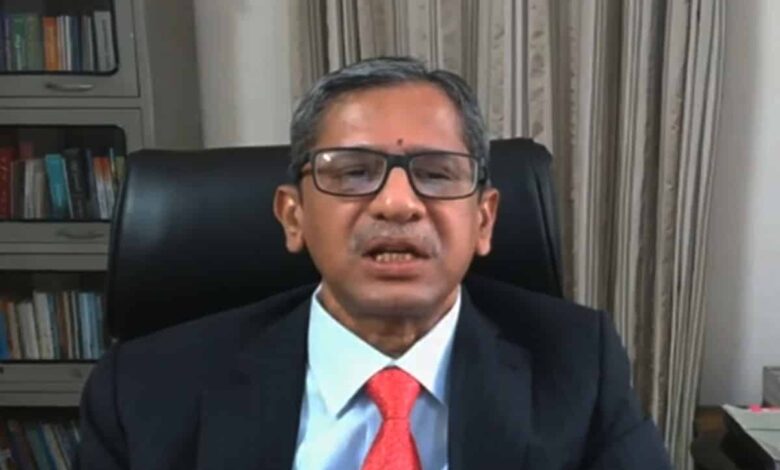Threat to human rights highest in police stations: CJI N V Ramana on custodial torture
CJI said that despite the constitutional declarations and guarantees, lack of effective legal representation at the police stations is a huge detriment to arrested or detained persons.

Chief Justice of India N.V. Ramana on Sunday said police stations pose the “highest threat” to human rights and dignity, which are ‘sacrosanct’.
“The threat to human rights and bodily integrity is the highest in police stations… Going by recent reports, even the privileged are not spared third-degree treatment,” the Chief Justice said.
Custodial torture and police atrocities still prevail despite constitutional guarantees, he said.
Lack of effective legal representation at police stations is a huge detriment to arrested or detained persons. The first hours of arrest or detention often decide the fate of the case for the accused, the CJI said.
The top judge was speaking at the release of National Legal Services Authority’s legal services app and vision statement at Vigyan Bhawan.
The CJI had a word of advice for his fellow judges.
Chief justice Ramana noted that if the judiciary wants to gain the trust of the poor and vulnerable, it has to assure the marginalised that it exists for them.
For the longest time, he noted, the vulnerable sections have lived outside the system of justice.
“If judiciary wants to garner the faith of the citizens, we have to make everyone feel assured that we exist for them. For the longest time, the vulnerable population has lived outside the system of justice,” the CJI said .
Lengthy, expensive formal processes followed by courts dissuade the poor and the vulnerable. The judiciary’s toughest challenge today is to break these barriers, he said.
“If we want to remain as a society governed by the rule of law, it is imperative for us to bridge the gap of accessibility to justice between the highly privileged and the most vulnerable. For all times to come, we must remember that the realities of socio-economic diversity which prevail in our nation cannot ever be a reason for denial of rights. Let our past not determine our future…”
Digital divide
Chief Justice Ramana said the digital divide has not helped the cause of easy access to justice. Rural and remote areas suffer from lack of connectivity.
“Accessing justice in India is not merely an aspirational goal. We need to work hand in hand with various wings of the government to make it a practical reality.”
The Chief Justice said he has already written to the government about the urgent need to bridge the digital chasm “on a priority basis”.
“Let us dream of a future based on legal mobility, a future where equality is a reality. That is why the project ‘Access to Justice’ is an unending mission,” CJI Ramana said.





